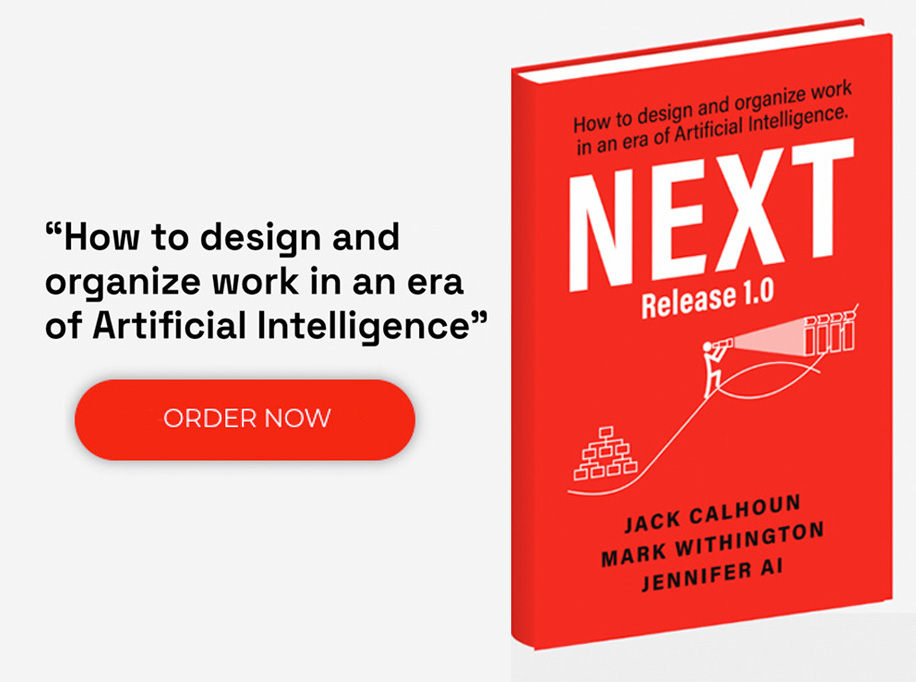The health insurance industry is in a new digital age, one characterized by rapid change, disruptive technologies, and evolving customer expectations. Drawing from the wealth of knowledge and experience helping enterprises and organizations navigate digital disruption, we offer a holistic view of digital transformation in health insurance. In this guide, we discuss the drivers, challenges, and benefits available to those who embrace the new digital age.
What is Digital Transformation in Health Insurance?
Digital transformation in the health insurance industry is a continuous and holistic adoption of digital technologies, data analytics, and customer-centric strategies to fundamentally change the way insurers operate and deliver value. It is an ongoing paradigm shift from traditional, siloed approaches to more agile, connected, and insight-driven models that harness the full potential of digital innovation.
In practice, digital transformation in health insurance involves a wide range of ongoing initiatives and capabilities. These include:
- Leveraging artificial intelligence and machine learning to automate complex processes
- Using big data and predictive analytics to personalize customer experiences
- Building digital platforms and ecosystems to create seamless collaboration and data-sharing
- Rethinking organizational structures, culture, and talent strategies to foster a mindset of continuous learning, experimentation, and customer-centricity.
What is Driving Digital Transformation in the Health Insurance Industry?
Digital transformation in the health insurance industry is driven by a perfect storm of technological advancements, shifting consumer demands, and regulatory pressures that include the following:
- The Proliferation of Generative AI and Advanced Technologies: The rapid advancement of technologies like GenAI, machine learning, and big data analytics allow insurers to automate complex processes, gain deeper insights into customer needs, and deliver personalized experiences at scale.
- Shifting Customer Expectations: Health insurance customers expect seamless, personalized, and digital-first experiences. They also demand greater transparency, convenience, and control over their health and wellness journey.
- Increased Demand: As highlighted in a recent study published in the Journal of Healthcare Leadership, healthcare services are facing increased demands to thelinked to pandemic, an aging population, chronic diseases, workforce changes, and the need to improve access, affordability, and quality of health insurance services.
- Intensifying Competition and Market Disruption: The health insurance industry faces fresh competition from both traditional players and new entrants, including InsurTech startups and tech giants.
- Regulatory Changes and Compliance Pressures: The health insurance industry is subject to a complex and evolving regulatory landscape, including long-standing regulations like HIPAA and the Affordable Care Act, as well as new and emerging data privacy and security laws. While digital transformation can complicate compliance efforts, it also presents opportunities for insurers to leverage advanced tools and platforms to refine compliance processes.
- The Need for Operational Efficiency and Cost Reduction: The healthcare industry faces complex cost and operational dynamics. Health insurers must efficiently allocate resources, manage costs, and reduce unnecessary expenses while ensuring quality care for their members.
Key Challenges of Digital Transformation in Health Insurance
Digital transformation in the health insurance industry is a multifaceted process that presents numerous challenges, some of which include the following:
- Siloed Systems and Data Integration: Health insurers often struggle with disparate and disconnected systems, making accessing and utilizing data effectively across the organization difficult.
- Legacy Technology and Infrastructure: Many health insurers are burdened by outdated technology and infrastructure that hinder their ability to adopt and implement new digital solutions. Modernizing these legacy systems can be complex, time-consuming, and costly.
- Resistance to Change and Cultural Shifts: Digital transformation requires a significant shift in mindset and culture within the organization. Overcoming resistance to change, particularly among employees who are accustomed to traditional ways of working, can be a major hurdle for health insurers.
- Data Privacy and Security Concerns: With the increasing reliance on digital systems and the sensitive nature of health data, insurers face heightened data privacy and security risks.
- Skill Gaps and Talent Acquisition: Digital transformation demands new skills and expertise, such as data analytics, artificial intelligence, and user experience design.
- Balancing Innovation and Regulatory Compliance: The health insurance industry is heavily regulated, which can sometimes hinder the pace of innovation. Insurers must find ways to balance the need for digital innovation with the complex and evolving regulatory landscape.
- Aligning Digital Initiatives with Business Objectives: Digital transformation efforts must be closely aligned with the insurer’s overall business strategy and objectives. Ensuring that digital initiatives deliver measurable value and support the organization’s goals can be challenging.
Top Benefits of Digital Transformation in Health Insurance
These benefits highlight the transformative potential of digital technologies in the health insurance industry.
- Improved Customer Experience: Digital transformation allows health insurers to deliver seamless, personalized, and engaging experiences across all touchpoints. By leveraging data analytics and AI-powered tools, insurers can gain deeper insights into customer needs, preferences, and behaviors, helping them tailor products, services, and interactions to individual requirements.
- Improved Operational Efficiency: Digital technologies offer powerful tools to streamline and automate various processes within health insurance operations. From claims processing and underwriting to policy administration and customer service, digital solutions can reduce manual effort, minimize errors, and accelerate turnaround times.
- Data-Driven Decision-Making: The proliferation of data in the digital age presents a significant opportunity for health insurers. Data-driven insights help insurers make more informed, evidence-based decisions in areas such as fraud detection, pricing optimization, and more.
- Enhanced Risk Management: Predictive analytics and AI-powered tools can help insurers identify potential risks, detect fraudulent activities, and prevent losses. By leveraging real-time data from various sources, including wearables and IoT devices, insurers can also incentivize and reward healthy behaviors, reducing the overall risk profile of their customer base.
- Accelerated Innovation: By embracing agile methodologies, cloud computing, and API-driven architectures, insurers can quickly develop, test, and deploy new products, services, and features. Greater agility helps insurers respond rapidly to changing market dynamics, customer needs, and competitive pressures, fostering a culture of continuous improvement and innovation.
- Ecosystem Collaboration: Digital transformation allows health insurers to collaborate more effectively with various stakeholders within the healthcare ecosystem. By leveraging digital platforms and APIs, insurers can seamlessly integrate with healthcare providers, pharmacies, and other partners, facilitating data sharing, care coordination, and value-based arrangements.
Streamline Digital Transformation in Health Insurance with Accelare
It is clear that health insurers must embrace digital transformation to remain competitive, deliver exceptional customer experiences, and drive innovation. However, navigating the path to digital transformation can be daunting, requiring a deep understanding of the forces at play, the strategies to employ, and the pitfalls to avoid. That is why we invite you to take your digital transformation journey to the next level by ordering “Next,” a comprehensive resource that builds upon the insights shared in this guide and provides a detailed roadmap for success in the digital age.
Furthermore, we encourage you to take advantage of our free, quick Digital Disruption Assessment. This assessment will:
Discuss the four domains of digital disruption, which will provide you with a framework for understanding the key areas where digital technologies are reshaping the industry.
Measure your organization’s exposure to digital disruption against our proven digital disruption maturity model, giving you a clear picture of where you stand and the steps you need to take to advance your digital transformation journey.
Provide specific actions you can undertake to harness technology to your favor, enabling you to turn digital disruption into a competitive advantage and drive long-term success.
—
References:
- https://www.accelare.com/digital-transformation/ocm
- https://www.accelare.com/digital-transformation/digital-strategy
- https://www.accelare.com/digital-transformation/customer-experience
- https://www.accelare.com/digital-transformation/ai-roadmap
- https://www.accelare.com/digital-transformation/prescriptive-design
- https://www.accelare.com/digital-transformation/professional-development
- https://www.mckinsey.com/industries/financial-services/our-insights/insurance/elevating-customer-experience-a-win-win-for-insurers-and-customers
- https://pmc.ncbi.nlm.nih.gov/articles/PMC11546275/
- https://pmc.ncbi.nlm.nih.gov/journals/?term=%22Journal+of+Healthcare+Leadership%22
- https://www.insurtechny.com/
- https://www.cdc.gov/phlp/php/resources/health-insurance-portability-and-accountability-act-of-1996-hipaa
- https://www.healthcare.gov/
- https://www.sciencedirect.com/science/article/abs/pii/S0166497223000275
- https://augmented-age.ai/
- https://www.accelare.com/digital-disruption











